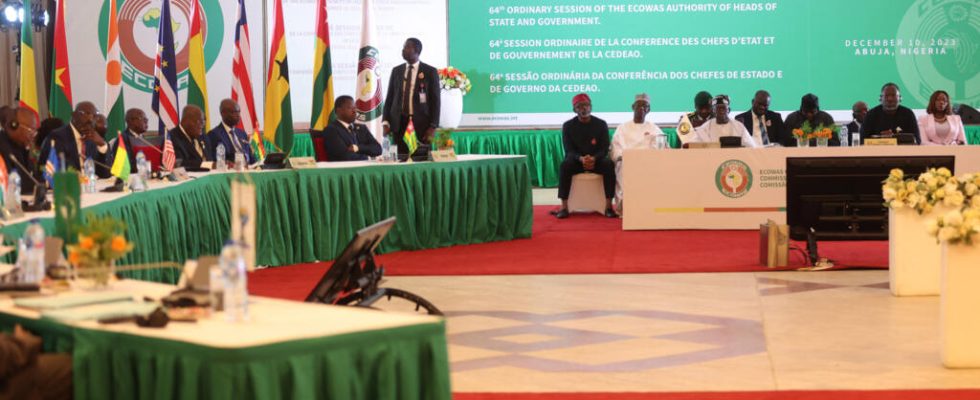Shortly after General Tiani’s coup d’état in Niger, the possible military intervention of the Economic Community of West African States (ECOWAS) was almost certain. Member countries of the regional organization have even mobilized troops. Ultimately, this option is abandoned, at least for the moment. A look back at this change of direction.
1 min
With our regional correspondent, Serge Daniel
At the end of last July, following the coup d’état in Niamey, Bola Tinubu, president of Nigeria and current president of ECOWAS, brandished the possible military intervention against the junta and obtained almost total support from the member countries of the institution. Benin, Senegal, Ivory Coast and Ghana have even volunteered to provide troops.
But quickly, the President of Nigeria ruled out the possible military option without even, according to our sources, consulting some of his peers. He is getting closer to Togo, a country which is not only against military intervention, but which advocates discussion with the putschists. An emissary from President Faure Gnassingbé discreetly goes to Nigeria. He is received by President Bola Tinubu and the same emissary then discreetly goes to Niamey.
Niger officially designates Togo as mediator. Heads of state are unhappy at not having been associated with the change of direction and are shunning the last summit in Abuja. Their representatives dispatched there, they ask to scale back by asking as the main condition for a gradual lifting of sanctions against Niger, the release of President Mohamed Bazoum.
Read alsoECOWAS officially acknowledges the coup d’état in Niger and wants to initiate discussions
